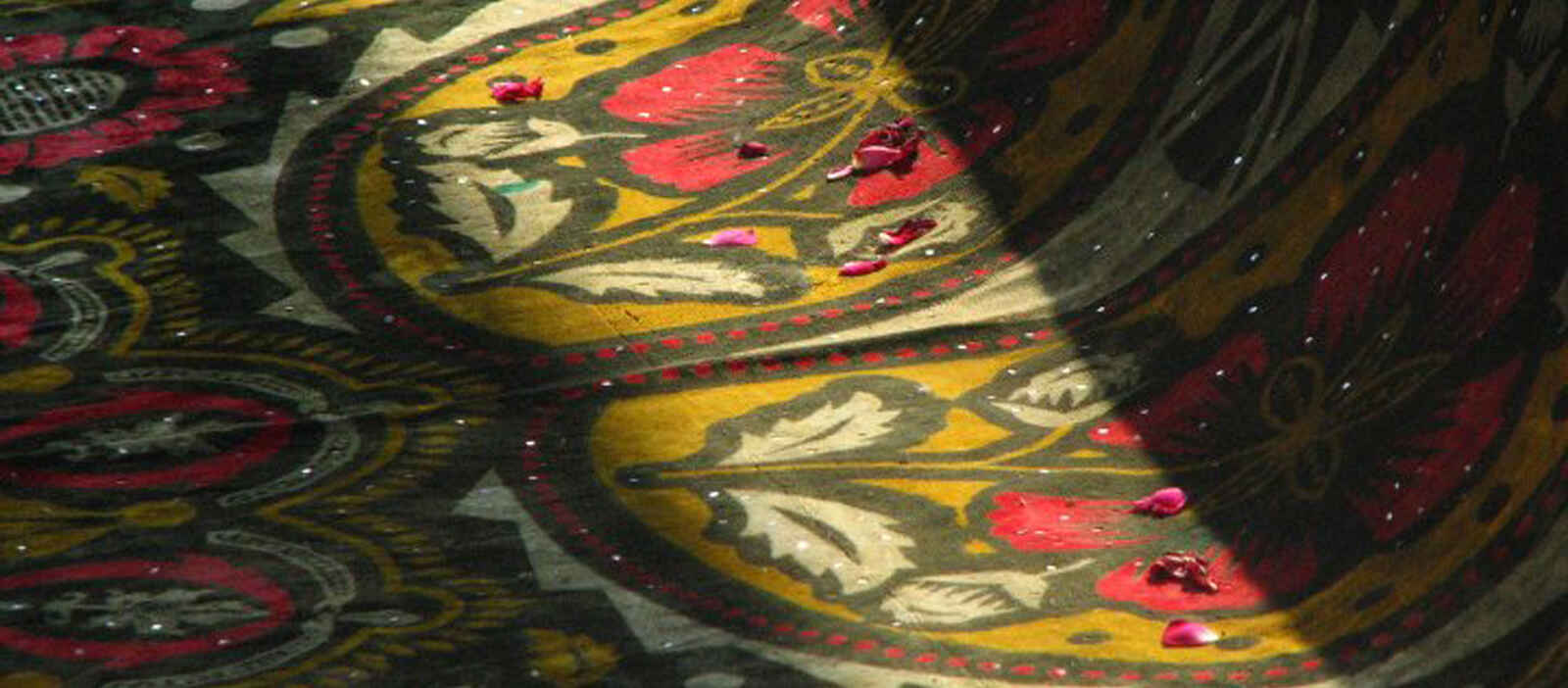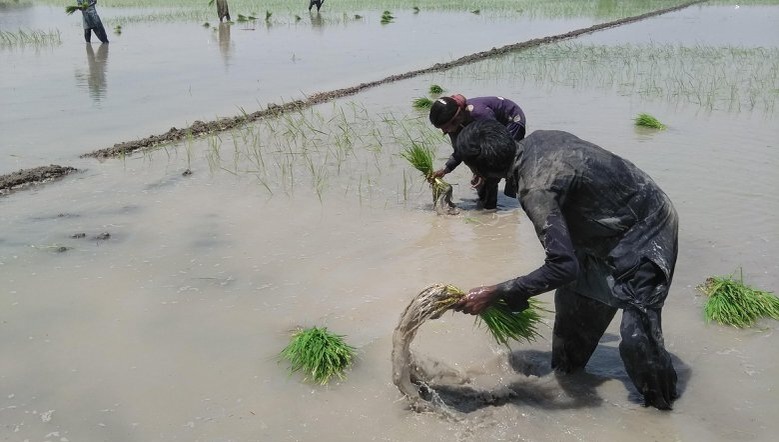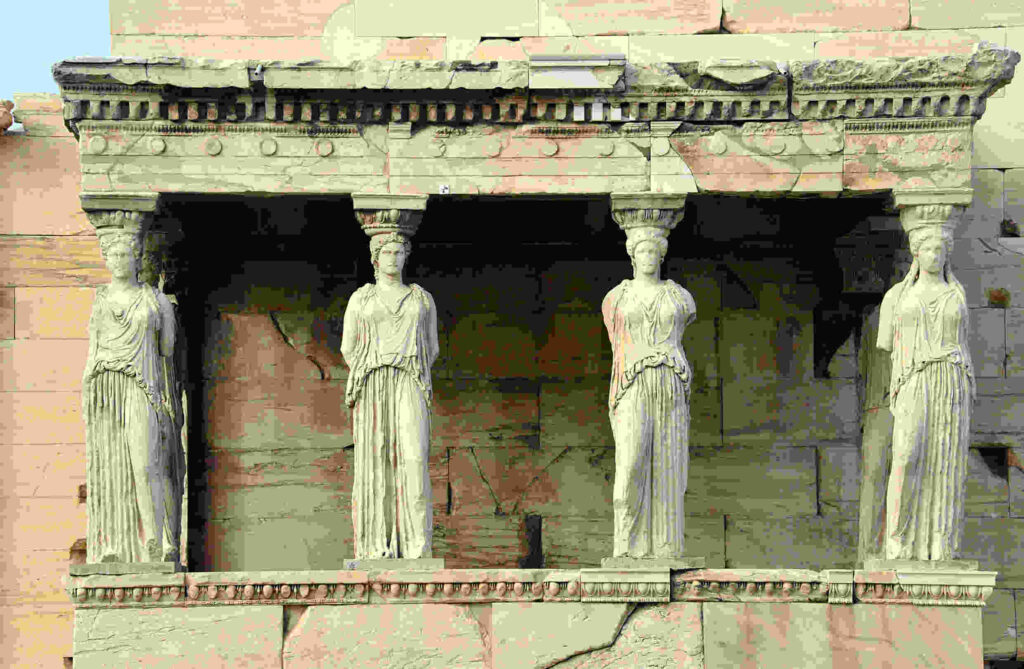
Actions & Anchors
Written by Talha Ali Kushvaha
As advocated by some scholars, people only get rulers they deserve for rulers are exactly as people are. Pakistanis are very quick to accuse politicians and bureaucrats of corruption but they usually fail to see that most of us are corrupt if not by act then by intention. If someone is powerful, he steals trillions, and weak steals perhaps only a few hundred or a little more. Most of us loot and plunder according to our power, influence and courage. If given an opportunity, many of the yet honest amongst us might not remain as honest. The point is that one could determine if someone is honest or not only when given an opportunity.
Corruption is perhaps more than financial misconduct. Incompetence is also a very damaging form of corruption. When a financially honest but incompetent person is given important specially state level responsibilities, s/he causes loss to country that could go into trillions of rupees besides deep-routed and irreparable damage to the nation no amount of money could compensate for. For instance, when someone damages culture and education of a country due to his or her incompetence, it could affect generations to come even without direct financial corruption. We must continuously sensitize ourselves to all such forms of corruption and its implications for us.
These are some very serious times for Pakistan. A very deep polarization exists in our society and no matter which side one is on, anxiety, fear and uncertainty not just about individual future but also that of Pakistan seem to stay with us at all times. As the Executive Director of the National Institute of Folk and Traditional Heritage (NIFTH), I was invited by the Federal Investigation Agency (FIA) to give a talk to young FIA officers doing a course at the FIA Headquarters in Islamabad. When FIA Director of Training Mr Athar Vaheed, who himself was a cultural enthusiast told me the subject I had to address should naturally be related to culture, I decided to combine culture and crime in the context of Pakistan to make my talk on culture directly relevant to FIA.
Preparing for this lecture got me thinking what could I possibly talk about – Corruption has been discussed in Pakistan almost to death. Our TV chat shows are all about how corrupt most of our politicians and government officials are, and how miserable we are as a nation and so on and so forth. Then all this long and painstaking process of outlining crime and corruption in Pakistan is followed by what needs to be done. Most suggestions are in the “ought to be” and “should be” forms and mostly directed at politicians and government officials – they should become honest; they should all do good; they should realize Pakistan needs their sincere services; if you do good, more good comes your way, etc. and etc. and etc. However, it might be useful to explore the dynamics of how we choose to do what we do both good and bad. I wish to share one important psychological aspect that is at the core of our choices – corrupt or otherwise.
Like a ship in deep moving water, every human being needs anchors, which help him/her make choices specially when the world is a difficult place with temptations, evil skulking in our minds and around us, and our enemies with their own agendas and objectives which are almost always against our interests. With such factors acting like deep water, they could not only take the ship far from its destination but also might sink it if it gets into storm or dangerous glacier or rock waters.
For a human being there are two kinds of controls or anchors that affect his/her behavior and choices s/he makes. One is external anchoring that is usually provided by the likes of FIA and police that externally control and check our behavior. A potential thief fears the police and refrains from carrying through his/her intention of stealing. Other such institutions play a similar role and thus keep us as safe as possible. However, external anchoring though quite effective in a number of cases nevertheless has a limited overall impact if individuals are determined to commit a crime. Suicide bombing is a case in point where no amount of external checks or anchors are enough to deter a potential bomber and the United States Army has failed miserably to hinder suicidal attempts by mere external control even with best resources in the world.
On the other hand, internal anchoring is immensely powerful and determines our behavior much more strongly and holistically than external controls. At the heart of our internal anchoring lies our identity. When our inner lust and greed incite us to do anything bad, our identity reminds us not to do anything that is not right. It echoes inside us whatever we relate to as our identity and asks us to stop from doing evil for the sake of our identity. Our internal anchors of identity whisper to us, “you are from a certain clan and you cannot do anything undignified; you are from a respectable family, you cannot lie or cheat; you are from your country and you cannot do anything to bring bad name to your country; you are a Muslim, Christian, Sikh or Hindu and you can never be on the side of evil”. Interestingly, all these elements of our identity working together as our internal control mechanism will work even when there is no external control.

Identity makes us human and it defines who we are; where we come from; why we are here at any given moment; and where we want to go. It defines our worldview and it helps us be all that we are and all we can and should become. A well-defined and clearly defined identity makes us strong. Identity is commonly linked to elements like our name, where we live, our school, our family, our clan, our province, our country and our faith. Identity starts from our soil but then it goes all the way to our faith and spirituality – from earth to the heavens. It tells us about our cultures, our heritage and history, gives our lives meaning and tells us we are “Ashraf-ul-Makhlooqat”, the best of all creatures. As the science of psychology outlines it, with a strong and well-defined identity comes self-respect and consequent self-confidence in one’s own self and all elements related to our identity. With such incredible power, we can see how important identity is for humans.
By giving us self-respect and confidence, internal anchoring and control is what really determines our behavior, acts and choices. The only condition here is actually believing in one’s identity and its true meaning and essence. When we give example of the late politician Rana Chandar Singh and how he alone kept his promise to Ms Benazir Bhutto during the no-confidence move at the time, it is because for him, being a Rajput meant the highest possible code of truth, valor and dignity. In contrast, other less scrupulous Ranas in Pakistan take their identity superficially and do not actually understand, respect or believe in it, and therefore behave the way they do. However, for all such ‘Babus’, if their identity – Muslim, Sikh, Rajput, jut, Pashtun, Arain, etc., could mean a corner plot or foreign multiple visa for them, they would flaunt and exploit it by all means necessary. Everything here is for sale in the ‘Babu-land’ where personal power over the table and horsepower under the bonnet determine success, and righteous are the fools who act with honor, respect and dignity only to hide their weaknesses and lament their failures.
Once a wise man said give a child as much respect as much you want to make him great. The more respect a human gets the more he will act respectfully. Respect is crucial for children and they must grow up knowing who they are and that they are respectable as human beings and it can only come from a strong and well-defined identity. The flip side of this concept is that the more confused and distorted the identity is, the lower the self esteem, the greater the inferiority complex and lower the internal anchoring and strength, and lower the quality of a human being, group or a nation.
With weak identity and feeble internal anchoring, self-respect remains no more and what naturally follows is our self-confidence hitting rock bottom. When we do not respect ourselves, we cannot respect anything else either be it other human beings, birds, animals, trees, or the entire cultural and natural environment. Look at any tourist resort and we would know how respectful we are as a nation. Ironically, our tourism is under threat not because of global warming but because of us. Interestingly, people with such weak internal anchoring are also more prone not just to their own animal instincts but also to external influences.

Pakistan with its colonial past, its colonial education and training system, its colonial institutional culture and history, has been deeply affected by a weak identity and extremely low self-esteem especially with its deeply inculcated inferiority complex of the west. All our institutions originally British with colonial origin have an inherent superiority of the British in particular and the west in general. Most of us consider the British and their colonial traditions, practices and attitudes ideal and something to mimic – the making of the infamous ‘Babu’. However, the poor ‘Babu’ has not even been able to copy his/her British masters truly because as they say – “naqal kay liya bhi aqal chahyay hotee hai” which means even to copy properly one needs basic intelligence. This bad copy of the original ‘colonial babu’ has resulted in an epidemic of sheer incompetence and lack of dignified conduct even at a superficial level.
Our national narratives have also contributed to a weak and distorted identity. We first accepted the term ‘partition’ of the Indian Sub-continent rather than calling it ‘unification’ of so many big and small empires and kingdoms into two new countries Pakistan and India, as Hyderabad was soon taken over by India right at the beginning of its formation as an independent country.
Even after almost seventy years of formation of Pakistan, some of us are still trying to justify ‘partition of motherland’ as both our Indian neighbors and we like to call it. Bharat (new Indian country made in 1947) thus dwells and drools over ‘Akhand Bharat’, the entire Indian Continent to be one big Brahminic country, which might qualify to be a dream but has never existed in the ten thousand years history of the Indian Sub-Continent. The Indian Sub-continent has always comprised of big and small empires just like Europe has been for its entire history, and the British Empire was one of the nearly six hundred states, kingdoms and empires ruling various regions of the Indian Sub-continent. All of them gave up their identities and unified into two new countries – Pakistan and India. There never was any tearing off part of land of the newly made country “India” to carve out Pakistan. In fact geographically Pakistan is “real India” in the historical sense as it has the mighty Indus River and India is actually Bharat.
Then we went on to propose our approach to this unification resulting in the formation of Pakistan by saying we are not Balochis, Panjabis, Pukhtoons or Sindhis but just Pakistanis, rather than saying we have been indeed all of this for thousands of years and now also very good and patriotic Pakistanis. Rather than understanding and appreciating the advantages of diversity of identity and culture, we adopted a rather cynical and excluding approach to culture and identity. Identity can never be a single entity but has building blocks. Respecting one block of identity and disrespecting the other in fact reduces and distorts identity and confuses a person. If I were to tell a child s/he is a bonafide student of his or her school, s/he is nephew or niece of his/her uncle but s/he is not of his/her parents, it will certainly traumatize the child and s/he will have extremely low self-worth even if we were to go out of our way to drum up and celebrate his/her school identity. This selective identity approach was added to our deep colonial hangover and traumatized most of us at a subconscious level leaving us in a zombie-like state with lust for power and no originality or creativity.
This is the reason we might be paying lip service to the pride in elements of identity of our country but deep down we look down upon our own soil, our culture, our dresses, our way of life and almost everything about our own selves and our country. Our own traditions, our folk art and music, our passport and in some cases even our religion is a cause of embarrassment for us. That is why we say we are Muslims but only remain comfortable in practicing basic rituals as and when possible. When it comes to Islam’s social and economic approaches and concepts, we ignore these as inconvenient and impractical. As far as the respect for our own traditional regional dresses is concerned, check out any social club in Pakistan and their management would tell you that our own dresses are for the poor doormen and guards, and worthy members are allowed only in western dresses. In spite of the extremely hot and tropical climate in our big cities, most ‘educated’ and ‘aware’ Pakistani men insist on wearing warm western dresses only suitable for European temperatures. We cannot be formal unless we wear jacket and trousers made with thick imported cloth.
Similarly for most of us, only imported items are worth buying and our own items are third grade in quality. Unlike India, Bangladesh and other countries, since we have not owned and bought our own items as far back as the colonial times, it has become what is called a ‘self-fulfilling prophecy’ – our items and goods are now actually substandard compared to imported items, a case ‘Babu’ in us so proudly flaunts to justify his immense contempt for his own local stuff.
Another dimension of internal weakness as a result of confused identity is that it makes individuals, groups and nations susceptible to enemies on the prowl for such targets for their own ulterior motives. It is perhaps still not mainstream knowledge that social engineering and propaganda experts have always focused on internal anchoring for mind control to condition and alter perceptions and behavior of individuals, groups and countries to their advantage.
Pakistanis with their weak internal anchoring and extremely low self-esteem would be ideal ‘subjects’ of our enemies’ social engineering endeavors, which by now have already been put well into motion aided by strong western media and education systems in place especially in the former colonies like Pakistan. With these tools, the west also has extremely aggressive, highly sophisticated and precisely targeted propaganda projects to successfully and very quickly fulfill their foreign agendas. We can perhaps see results of this enemy onslaught throughout our history in the form of interventions through threats and incentives for the powerful ‘babu’ lurking within the weakling called Pakistani. What we see happening in Pakistan today at all levels is precisely the result of this confused identity, low self-esteem, lack of confidence, lack of honor and dignity and resultant ‘bayghairatee’ that is shameless lust and greed which has not left any space for excellence and creativity. As a wise man once told me the most dangerous person in the world is never the most ruthless, rich, powerful, ambitious or resourceful but a shameless person because when it would come to his or her own material interest, s/he could drop down to such low levels the dignified could never stoop to and this would make the ‘bayghairat’ person defeat the righteous every time.
With our current state of affairs, ‘bayghairatee’ has spread at all levels and everywhere throughout the country, from our behavior at work to our treatment of weak and poor, our attitude on the roads and our dealings with the outside world. Our analysis of how we should or would behave in any given situation always goes wrong because it does not take into consideration the element of ‘bayghairatee’, which ridicules and defies all codes of morality, decency, dignity and respect and has its own shameless and materialistic path undeterred by scruples and principles. Rather than strive for excellence and freedom, dishonorable, unscrupulous and shameless people always prefer material comforts and slavery even when there are no external enemies.
Talha Ali Kushwaha is a Cultural Specialist, Professor of Culture & History; former Board Member and Executive Director of Pakistan’s National Institute of Folk and Traditional Heritage; Researcher & Specialist in appraisals and assessments in social sector in education & culture; musician and writer on history, culture, education, media & music.
